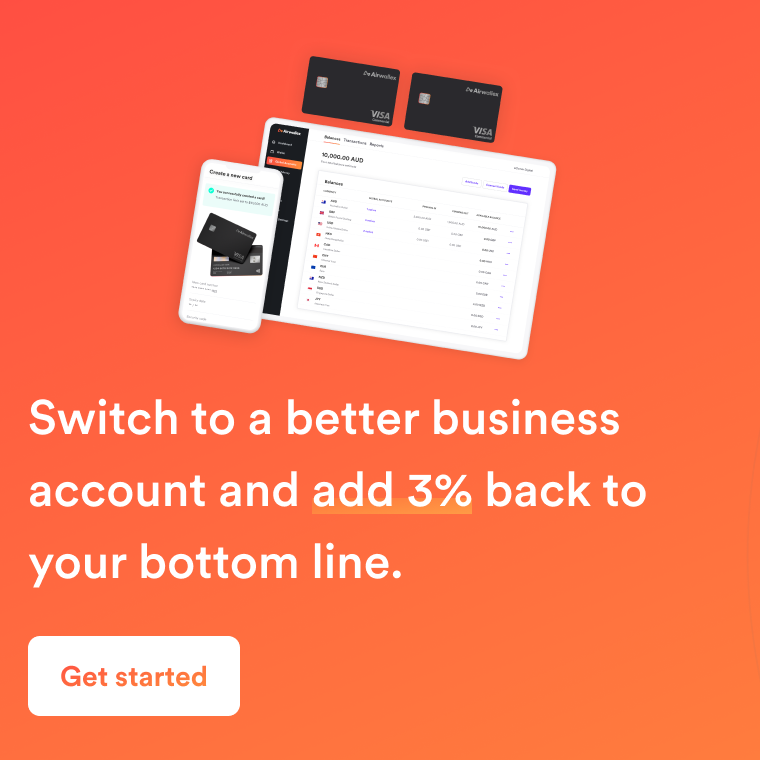How to import goods to the UK: Your ultimate guide

If you’re a UK-based business that sells physical products, there’s a high chance you import goods from international suppliers.
According to eMarketer, the UK represents the third largest ecommerce market in the world. But Britain’s manufacturing output remains relatively small, accounting for just 1.8% of global production. In other words, we sell a lot of stuff that other people make.
Importing goods to the UK can be complicated, and is not without risks. Unless you know your stuff, you could make errors that damage your brand and hurt your bottom line.
In this article we’ll provide a step-by-step guide to importing goods into the UK. Whether you’re launching a new venture, or have been running your business for years, this guide will help you save money, build customer loyalty, and establish a trusting relationship with your international suppliers.
Choose an ethical supplier
First thing’s first. Before deciding to work with an international supplier, you must do your research. Over the past few years, several brands have faced accusations of exploitation from factory workers. Not all countries have the same regulations when it comes to working conditions, so you must take personal responsibility for how your products are made when working with overseas suppliers.
For advice on sourcing ethical suppliers, join a business network such Common Objective or the Institute of Business Ethics. You can also consult other business owners by visiting trade shows and joining online forums such as the Shopify Entrepreneurs Facebook group.
Many businesses now put sustainability and ethics at the heart of their brand identity, and list the factories they work with on their website and product pages. This transparency can help you build trust with customers, and gain an edge over less scrupulous competitors.
Pay your suppliers, without paying the banks
Paying overseas suppliers means transferring big chunks of money abroad. If you transfer money using a high street bank, you will be subject to exchange rates of up to 3.5% above the interbank rate.
That means if you’re paying an international supplier £100,000 in their local currency, you could end up giving the bank a whopping £3,500 just for the privilege of sending money abroad. To avoid these fees, you have two options:
1. Use a cheaper method for transferring money
Airwallex offers a market-beating currency exchange rate of just 0.5 - 1% above the interbank rate. Open a global account with us, and you’ll pay significantly less when sending money abroad.
2. Avoid currency exchange altogether
The benefit of a foreign currency account is that you can receive, hold and send multiple currencies without making unnecessary currency conversions.
Say you’re a UK business with a large customer base in Europe, and you also have European suppliers. You can collect Euros from your customers straight into your global account, keep them there for as long as you want, then use them to pay your European suppliers when the time comes. This way you can sidestep currency exchange fees altogether.
Hundreds of businesses use Airwallex to avoid unnecessary conversion fees and add thousands of pounds back into their bottom line. If you’d like to join them, apply to open a free global business account today.

Secure a customs broker and freight forwarder
We highly recommend that you secure a customs broker to help get your products across the UK border. Customs brokers are fully versed in international trade law, and will ensure your goods arrive the in the UK without a hitch.
Many freight companies, including DHL and Fedex, offer customs brokerage as part of their service. If your chosen freight forwarder doesn’t offer customs clearance services, you can hire a broker separately.
To secure the best deal, you should get an itemised quote from several providers before choosing who to go with.
Decide how you’re going to transport your goods
As a general rule, if you’re importing goods from outside Europe, your cheapest option is to ship by sea. Air freight is around six times more expensive than sea freight, and should only be used if you need products delivered fast, or if your items are extremely small and lightweight.
If you’re importing from Europe, you can transport goods via road or rail relatively cheaply. But bear in mind that a shortage of lorry drivers in the UK has caused delays in recent months.
Get your paperwork in order
Before you import goods to the UK, you must have all the necessary paperwork in place. If you employ a customs broker, they will work with you to ensure the following steps are completed correctly.
1. Get an EORI number
Your business needs an Economic Operators Registration and Identification number (EORI) in order to make a customs declaration. You can apply for an EORI number on the government website.
2. Find the commodity code for your goods
Commodity codes are a ten digit number used by customs to classify products entering the UK. They determine the duties and taxes that you’ll have to pay on your imports.
Commodity codes used to apply to imports from outside the EU only, but due to Brexit EU imports now also require a code. If you do not use the correct code your goods may be held by customs, costing you time and money. Use this tool to find out which codes apply to your products.
3. Find out if your goods need an import licence or certificate
This applies to controlled goods such as plants, medicines and chemicals.
4. Determine the value of your goods
The amount of VAT you pay depends on the value of the goods you are importing. You must include this value on your import declaration.
There are several ways to establish the value of your goods. One method is to provide evidence of the price you paid for them (including commission, packing, shipping and insurance costs), another is to provide evidence of the manufacturing costs.
5. Establish Incoterms with your supplier
Incoterms, or International Commercial Terms, are a set of globally recognised guidelines which determine who is accountable for your products throughout their shipping journey.
You must agree your Incoterms with your supplier before products are shipped, so that it’s clear at which point responsibilities—such as insurance, taxes and customs procedures—shift from your supplier to you.
Incoterms are set out by the International Chamber of Commerce (ICC). The current guidelines were written in 2020 and can be downloaded from the ICC website. You must include your Incoterms on your commercial invoice.
6. Ensure your supplier has their paperwork in order
Your supplier must have the necessary licences and certifications to send goods to the UK, and may need to make an export declaration in their country.
6. Establish whether you can reduce or eliminate customs duty on your imports
If the UK has a trade agreement with the country you’re importing from, or if they’re covered under the UK Generalised Scheme of Preference, you may be able to reduce your customs duty or avoid paying duties altogether.
You can also reduce your customs duty if you are importing goods temporarily, re-importing goods that have been imported before, or importing goods to repair them. Learn more about whether your goods are exempt from customs duty here.
6. Find out if you can delay customs payments and declarations
The UK government introduced a delayed customs scheme to soften the impact of Brexit. However, this scheme is due to end on 31st December 2021. Use this tool to find out whether you can delay customs payments and declarations up to six months after the import date.
7. Make an import declaration and get your goods cleared by customs
As mentioned, we recommend that you use a customs broker to help you with your import declaration. Customs brokers understand how import laws apply across different products and countries, and can help you get your goods through customs efficiently.
For ease, you can choose a freight company which includes customs brokerage as part of their service. If you’re not using a customs broker, you’ll need to submit an import declaration yourself, and pay what you owe in tax and duties before you get your goods through customs. Use this step-by-step guide to making an import declaration from HMRC.
Final thoughts
Importing goods into the UK requires research and attention to detail. With the right support in place, you can avoid unnecessary fees and ensure your products pass through customs smoothly.
By dedicating time to finding a good supplier, freight forwarder and money transfer service, you can save money and protect your business in the long term.
To learn more about how Airwallex can help you save thousands on global money transfers, sign up for a free account or book a demo today.
Share

Tilly manages the content strategy for Airwallex. She specialises in content that supports businesses in their growth trajectory.
Related Posts

What are recurring payments? How they work, examples, and benefit...
•9 minutes

Cross-border selling: Four ways to increase your cross-border sal...
•7 minutes
